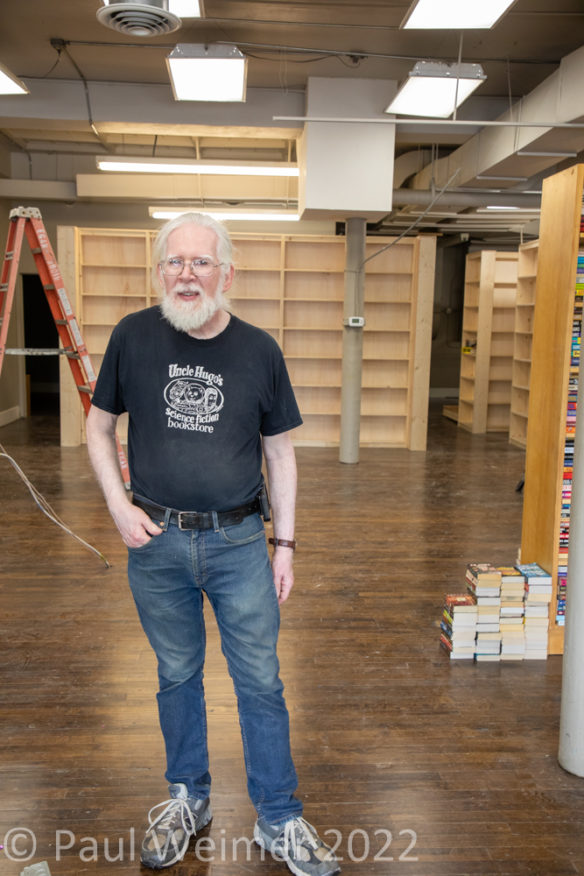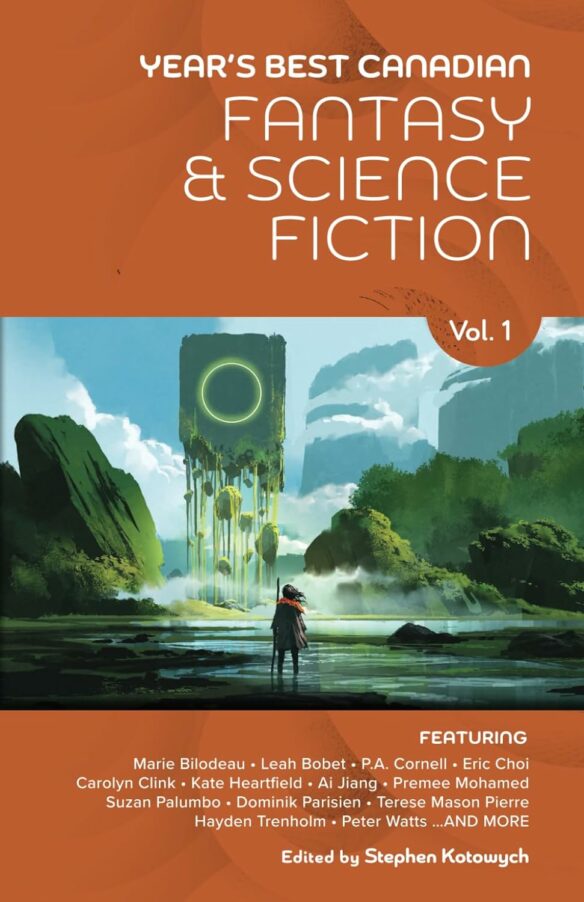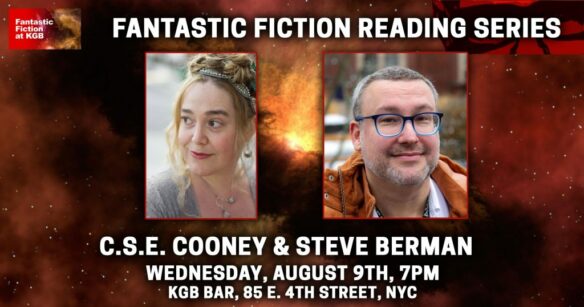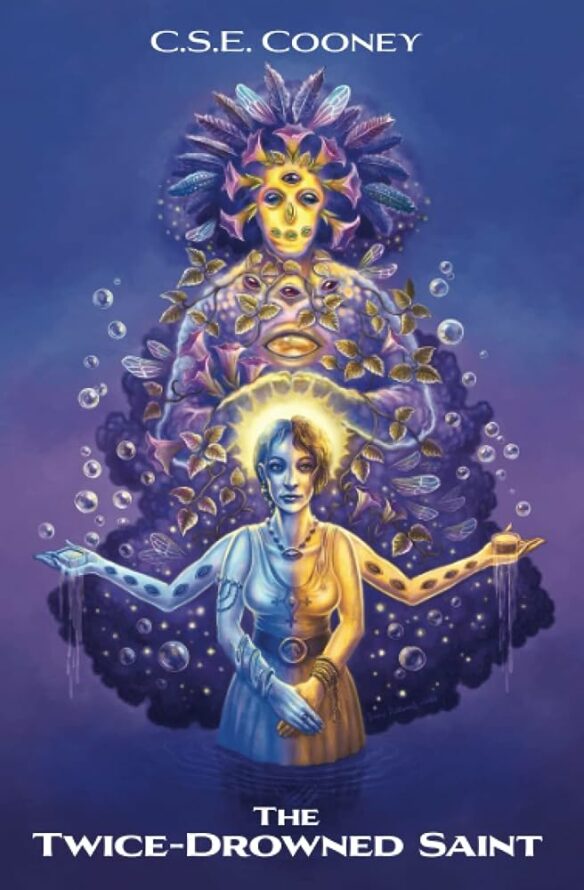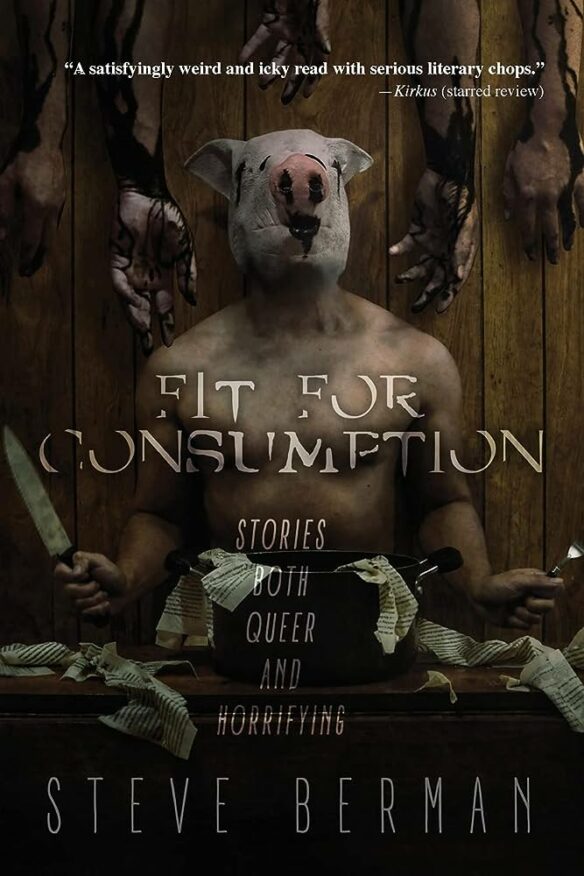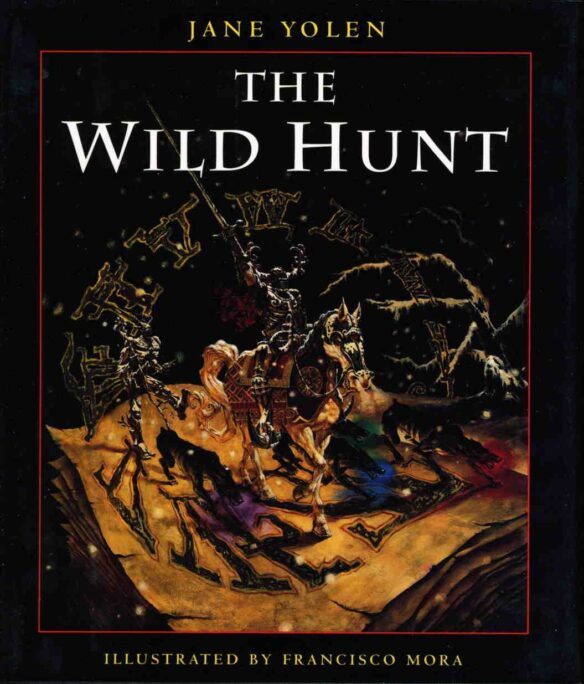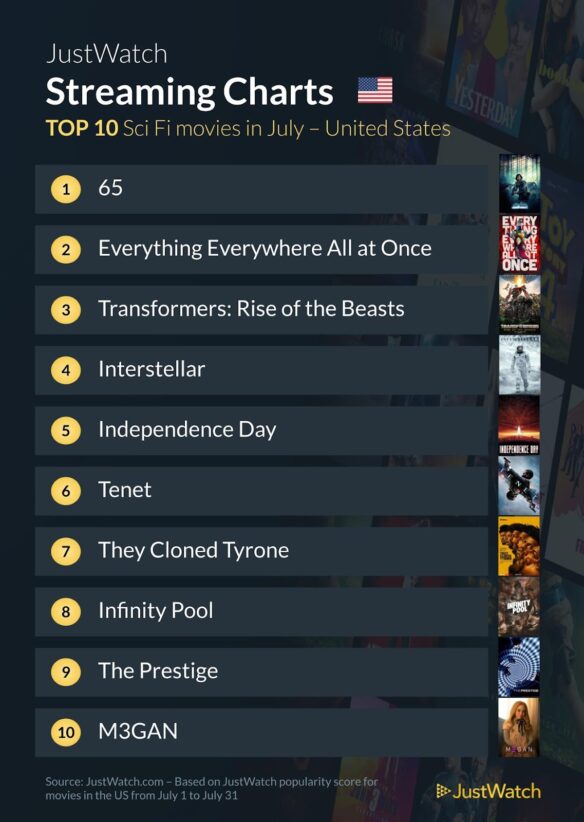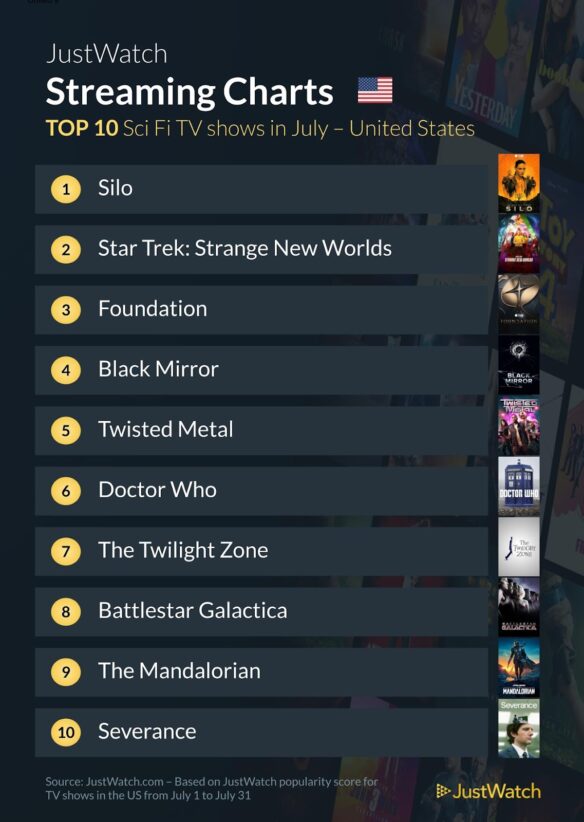(1) BRIAN KEENE HELPS OUT. Yesterday we linked to Jason Sanford’s report about the hit Apex Books is taking from the bankruptcy of Diamond Book Distributors because of payments they won’t be receiving. Today, Brian Keene announced he will give Apex Books a lift by foregoing some royalties Apex owes Keene: “Apex Books”.
If you’re a regular reader of my daily journal over on Patreon, then you’ve been following all the fallout from the Diamond Distribution bankruptcy. I’d mentioned in one of those entries that this wouldn’t just impact comic publishers and comic stores, but book publishers and booksellers, as well.
One of the main publishers who have been drastically hit by what is — in my personal opinion — either utter incompetence or complete malfeasance on the part of Diamond executives — is Apex Book Company, who’ve published my own ISLAND OF THE DEAD, THE LOST LEVEL, RETURN TO THE LOST LEVEL, HOLE IN THE WORLD, KING OF THE BASTARDS, THRONE OF THE BASTARDS, and CURSE OF THE BASTARDS (those latter 3 cowritten with Steven L. Shrewsbury). I have also appeared in a number of their anthologies, including the recently released THE MAP OF LOST PLACES.
You can read in detail about how Diamond’s collapse has impacted them via this note from owner (and my friend for 20 years) Jason Sizemore. The situation is dire.
One of the biggest outstanding debts Apex is currently facing is royalties for my novel ISLAND OF THE DEAD. I like Apex. i like Jason and Lesley. I like that they’ve taken chances on a wide-ranging line-up of new voices in horror, fantasy, and science-fiction. I like that they have always paid their authors on time and fairly, and that they actually spend money marketing and promoting the books.
Therefore, this afternoon, I have informed Jason that I am waiving ALL ROYALTIES due to me for ISLAND OF THE DEAD. Apex will not have to pay me for copies sold from the book’s initial release until now. While that won’t completely fix the situation, it does remove one of their bigger debts and buys them some breathing room. As I said, I’ve known Jason and Lesley a long time, and in talking to them this afternoon, I know that this will definitely help.
I would like to ask that if you haven’t yet bought one of those books I mentioned above, that you do so now, but also that you do it directly from Apex via their website, rather than Amazon or a chain bookstore or even my own indie bookstore. Buying them directly from Apex will immediately put money in Apex’s pockets, and allow them to pay all the other writers in their stable. If you already own all of my books published by them, then perhaps consider subscribing to their magazine or buying a book by someone else. You can do all of those things via the Apex website.
…While I am not wealthy, this past year has been pretty good for me. I’m currently in a place where I can afford to take the financial hit of waiving those ISLAND OF THE DEAD royalties. I know that other authors are not, and I would never ask them to do so. I also know that most people have the attention span of a gnat with ADHD, and will ignore a plea for folks to go buy books from Apex unless I give them a reason to read through this announcement. It is my hope that — having read it to see what the hell Brian Keene is up to this time — you will indeed now click the link, buy some books, and then other folks can get paid.
(2) TALKIN’ ABOUT MY REGENERATION. The Guardian finds that not everyone’s a fan… “’Like trying to float a sinking ship’: your reaction to Billie Piper’s Doctor Who return”.
…In all honesty, I’m a bit unsure how I feel. There are elements of it that makes sense, however, there is something unnerving about taking on the form of a previous love interest and wearing their skin as a suit. I hope it’s not just gimmicky – perhaps if there are links back to the Bad Wolf storyline that originated for the ninth Doctor then it may work. However, at the moment it does feel like trying to float a sinking ship. I say this as somebody who has loved Doctor Who since I was a child. Time will tell, but I hope this isn’t just another cheap trick to keep us interested. Russell T Davies don’t let us down! Gabrielle, freelance photographer and video editor, Bristol
…I’m shocked, but in a good way. Billie Piper is such an integral part of NuWho history and the credits didn’t introduce her as the Doctor, so the opportunities are endless (is she the Bad Wolf? Or the Moment?). I’m really excited to see what comes next and hope the show gets renewed. The only thing I’m upset about is how poorly parts of the fandom reacted. To bring back old characters is such a Doctor Who thing to do. I have the feeling that loads of people forgot what the show is about: it’s fun, it’s full of heart and it’s always been a little bit wacky, so why not embrace this new development with an open mind? As the Doctor himself said: “Hate is always foolish, love is always wise.” It would be great if people took that to heart. Isa, Germany
(3) TIME TO PLAY. Joe Stech has launched the Hawking Radiation Mass Energy Converter. (You may have tried his previous creation, Dyson Swarm which we linked to in January.)
“Game” is actually a strong word for what this is, the game is actually more of an experiment to try and convey some information about artificial black holes. It is possible to play through the whole game in less than two minutes, but it will probably take you longer than that to get a feel for the mechanics.
I’d love to hear what you think of it. If you want some light background reading to go along with the game, here’s the Wikipedia page on Hawking Radiation.

(4) FRAZETTA FAMILY WINS ANOTHER COURT DECISION. A U.S. District Court federal judge has reinstated summary judgment in Frazetta Properties, LLC suit against Jesse David Spurlock and Vanguard Productions, ruling that the latter misled the Court by citing a forged document to justify unauthorized use of Frank Frazetta’s copyrighted artwork.
Spurlock “claimed falsely that William Frazetta, Holly Frazetta, and Heidi Frazetta Grabin had signed this letter. This was false, as the defense now admits in light of the forensic evidence provided.”
The ruling comes in the ongoing case first filed in 2022 after Spurlock published Frazetta book cover art without a license.
A press release issued by the Frazettas adds:
The Court sanctioned Spurlock, reinstated its original summary judgment ruling in favor of Frazetta Properties, and ordered him to pay the Plaintiffs’ legal fees. The ruling affirmed that Frazetta Properties owns the valid copyright to the “Death Dealer II” and “Death Dealer V” artworks, and that Spurlock’s use of those images in his 2022 publication was unauthorized and infringed upon the Estate’s rights. The Court also rejected Spurlock’s claims of fair use and prior licensing, stating that his use of the art “supplants the object of the protected work and is therefore not transformative to any meaningful extent.”
This federal case followed a 2019 state court lawsuit in which Spurlock sued the Frazetta family alleging breach of contract after receiving a termination notice. At trial, the Frazetta family successfully demonstrated that Spurlock had failed to uphold his contractual obligations, including underreporting and underpaying royalties on Frazetta- related book sales. A jury ruled in favor of the Frazettas, and Spurlock later abandoned his appeal. He was also ordered to pay legal fees in that case.
“This ruling reinforces what we stand for: protecting the Frazetta name from fraud and defending the legacy of one of the greatest artists in American history—no matter what it takes,” said Joe Weber, representative of Frazetta Properties, LLC.
(5) GILBERT & SULLIVAN & REH. Bobby Derie chronicles a branch of Robert E. Howard fandom in “’The Ballad of Conan’ (1983) by Anne Braude” at Deep Cuts in a Lovecraftian Vein. There’s a screencap of Braude’s highly amusing filk lyrics at the end of the post.
The first fandom of Robert E. Howard’s Conan of Cimmeria arose in the 1930s, when the adventures of the barbarian were published in the pages of Weird Tales. Some fans, including R. H. Barlow, Emil Petaja, Charles B. Hornig, Alvin Earl Perry, and P. Schuyller Miller wrote to Howard—and the Texas pulpster wrote back, answering questions, sometimes gifting manuscripts of his stories, subscribing to fan publications like The Fantasy Fan, and providing unpublished stories and poetry for fanzines like The Phantagraph to publish as well.
This early interaction with fandom endeared Howard to his fans, and helped provide the basis for the first fan-publications…
…All of this increased fan activity, such as the Hyborian Legion and the Robert E. Howard United Press Association (founded in 1972). Conan was no longer an obscure hero from the pages of Weird Tales; the Cimmerian had become a staple of science fiction and fantasy, an archetype of barbarians, fighters, and rogues, a multi-media figure well-known and established in fandom—and the serious critical study of Robert E. Howard’s life and fiction were picking up, echoing the scholarly interest that Lovecraft had attracted a decade earlier.
Which is where things stood when fan Anne Braude wrote the jocular (but largely accurate) “Ballad of Conan” for the Conan-heavy issue of the fanzine Niekas in 1983….
(6) DEDICATED TO CORFLU. [Item by David Langford.] The Corflu 2025 fanthology Dancing to Architecture in which various fans write about music has just been added the free library at the TAFF site — with an optional donation to The Corflu Fifty suggested if you enjoy it. Many thanks to Corflu for the suggestion.
Dancing to Architecture, edited by Doug Bell, is a collection of fan writing about music, published for the fanzine convention Corflu 42 held in Newbury in April 2025. Edited by Doug Bell and designed by Pat Virzi, it includes fifteen essays, all original here, by Rich Coad, Lucy Huntzinger, Nic Farey. Geri Sullivan, Ulrika O’Brien, Mark Plummer, Ted White, Christina Lake, Bruce Gillespie, Sandra Bond, William Breiding, Claire Brialey, Doug Bell and John Harvey, with artwork from Brad W. Foster (front cover, at left), Alison Scott, Dave Hicks, Clarrie Maguire, Sue Mason, Ulrika O’Brien, Dan Steffan and Pat Virzi. 34,000 words.

(7) BOMBS AWAY. Literary Hub traces “How Literature Predicted and Portrayed the Atom Bomb” – featuring several bits of sff history, including this one I hadn’t come across before:
…Philip Wylie himself strayed into trouble in 1945 when he wrote a story called “The Paradise Crater,” about the efforts of neo-Nazis in a future 1965 to avenge Hitler’s defeat by building uranium bombs. Wylie fell afoul of Blue Book editor Donald Kennicott’s unusually dutiful decision to seek official permission in advance.
In short order, Kennicott was instructed to bury the story and Wylie was placed under house arrest in a hotel room in Connecticut. What, asked an Army Intelligence major, did Wylie know about the atomic bomb? The major said that he was prepared to take Wylie’s life, and his own, if it was necessary to prevent a security leak.
Wylie protested that he had no inside information, nor did he need any. Thanks to his publicity work for the US Air Force, he had friends in high places and was soon released. He offered to shred the manuscript but the major said, no, he should hang on to it until the war was over.
“The Paradise Crater” did indeed appear in the October 1945 issue of Blue Book, by which time the whole world knew about the atomic bomb. “I saw the headline, brought on the bus by a stranger, and thought: Yes, of course, so it’s here!” recalled one young science fiction writer, Ray Bradbury. “I knew it would come, for I had read about it and thought about it for years.”
Not that there was any cause for the science fiction community to feel smug, because what they had also foreseen, more often than not, was world destruction. “People do not realize civilization, the civilization we have been born into, lived in, and been indoctrinated with, died on July 16 1945 [the date of the first bomb test], and that the Death Notice was published to the world on August 6, 1945,” wrote John Campbell in his first Astounding editorial after Hiroshima. He added, “There is only one appropriate name for the atomic weapon: The Doomsday Bomb.”…
(8) IN A HOLE IN THE GROUND THERE WAS A LIBRARY. Untapped Cities tells “10 Secrets of the New York Public Library at 42nd Street”. Like, what was on that site before they built the NYPL?
2. The New York Public Library was Built on the Site of the Old Croton Reservoir
…The Croton Reservoir held 20 million gallons of water within its walls, which stood 50 feet tall and 25 feet wide. Edgar Allan Poe frequently walked atop the reservoir walls to enjoy the view they offered of the city. When it became obsolete in the 1890s, it was torn down to make way for the new library building. It took two years and some 500 workers to dismantle the reservoir. The cornerstone of the library was laid in 1902. The Old Croton Aqueduct would serve as a vital water supply for New York City for nearly a century until a new aqueduct was built, which remains in service to this day. Inside the library, you can still see pieces of the reservoir walls if you look for the rough stone between the stairs on the lower levels of the South Court, near the Celeste Auditorium….
(9) TODAY’S BIRTHDAY.
[Written by Paul Weimer.]
June 4, 1960 — Kristine Kathryn Rusch, 65.
By Paul Weimer: Kristine Kathryn Rusch is an author I found, and then lost and then found again. She in the meantime had been writing prolifically, in multiple genres and fields, but had fallen off of my radar for a good long while.
It all started in the 1990s when I picked up The Sacrifice, the first of her Fey novels. The high concept drew me immediately. A world-conquering empire of Elves sweeping everyone before them…and then they run into the speedbump of Blue Isle, which has a power to resist the Fey that they themselves don’t even quite suspect. Suddenly the easy conquest is not so easy and over the next several books, Rusch explored this conflict from multiple vantage points and perspectives.
And then, someone Rusch fell off of my personal radar. Too many other new authors, perhaps. Or I didn’t follow her into mysteries and other subgenres such as media-tie ins, of which she has written or coauthored a fair number of, in multiple universes, and often under other names as well, ranging from Star Trek to Roswell.
It wasn’t until my early official reviewer days that I picked up Rusch again, as she helped vitalize the xenoarchaeology novel subgenre with the Wreck series. I was offered a review copy of Diving into the Wreck, and my fond memories of The Fey stood me in good stead as I dug into Boss’ story.
Since then I’ve been following Rusch on her blog and Patreon, where she has fearlessly and openly discussed and educated on the craft and business of writing. Anyone seriously interested in either should follow and read what Rusch has to say.

(10) COMICS SECTION.
- Dinosaur Comics writes inspirational stories.
- Off the Mark has something most book clubs don’t.
- Reality Check self-rejects a time travel idea.
- Rubes has a well-wrapped pun.
- Saturday Morning Breakfast Cereal misjudges AI.
- Speed Bump really understands artists.
(11) IS SUPERMAN JEWISH? [Item by Lew Wolkoff.] I somehow got a subscription to Quora.com, and I read the entries for humor as much as anything else. Today, they got stuck with questions about Superman and other superheroes being Jewish. Here’s the response from Elliot Maggin, who wrote the Superman comics from 1971 to 1986. “Is Superman Jewish?”
Reply from Elliot S Maggin
Principal writer of the comic book series from 1971 through 1986; author of three novels in which Superman is a primary character.
The unwarranted assumption in the explanations above is that Kryptonians are not Jews. I dissent from that notion. While they are not direct descendents of the Judeans of the Middle East from whom the term “Jewish” comes, I always ascribed effectively Jewish doctrine and ritual to the Kryptonian tradition. In fact, the Kryptonian tradition is congruent with and certainly predates the Judean, so they have at least as much claim to the tradition as any of us.
I give all my characters religions, so I’ve thought this through – really. The Kents are Methodist (as is Clark), Lois is Catholic, Perry is Baptist, Jimmy is Lutheran (no surprise there) and Bruce Wayne and Batman are both Episcopalian (even less of a surprise there). And Superman (like the Siegels, the Shusters, the Weisingers, the Schwartzes, the Maggins and the Luthors) is Jewish.
This is so self-evident that it may as well be canon.
Comment by Lew Wolkoff: Clark Kent is Methodist, but Superman is Jewish? Good trick. I’m not too crazy about Luthor being Jewish, it smacks a bit too much of the “Protocol of the Elders of Zion” bullshit.
In the book From Kracow to Krypton about the influence of Jews on comic books, the author suggested that Superman and Batman fit the classic stereotypes for the Wise Son and the Wicked Son of the Passover seder. Traditionally, the Wicked Son is portrayed as a warrior (most common) or a man of wealth.
(12) VIEW THE MILKY WAY FROM NEW YORK. “American Museum of Natural History to launch new space show ‘Encounters in the Milky Way,’ narrated by Pedro Pascal” reports amNewYork. The show opens to the public on June 9.
A brand new space show that explores the intricacies of the Milky Way Galaxy is opening to the public at the American Museum of Natural History.
“Encounters in the Milky Way” is a time-traveling journey that shows galactic migration and how that cosmic movement impacts our solar system. The show is narrated by award-winning actor Pedro Pascal and will play in the museum’s Frederick Phineas and Sandra Priest Rose Center for Earth and Space’s Hayden Planetarium.
“This is the 25th anniversary of the Rose Center for Earth and Space, and it makes this space show, which is our seventh space show since the Rose Center opened, particularly special,” said Museum President Sean M. Decatur. “Since 2000, our space shows have transported millions of visitors to the edge of the observable universe with increasingly sophisticated visualizations based on observations from groundbreaking space missions and leading-edge scientific models.”…
(13) VIDEO OF THE DAY. “Foley: A Sonic Tale” from Lucasfilm.
In “Foley: A Sonic Tale,” Skywalker Sound’s Foley Artists, consisting of old pros and new talent, unite to bring the work of Star Wars alive through the matching of sound to action.
[Thanks to SF Concatenation’s Jonathan Cowie, Mark Roth-Whitworth, Steven French, Paul Weimer, Arnie Fenner, Lew Wolkoff, David Langford, Kathy Sullivan, Teddy Harvia, Mike Kennedy, Andrew Porter, John King Tarpinian, Chris Barkley, and Cat Eldridge for some of these stories. Title credit belongs to File 770 contributing editor of the day Jim Janney.]









